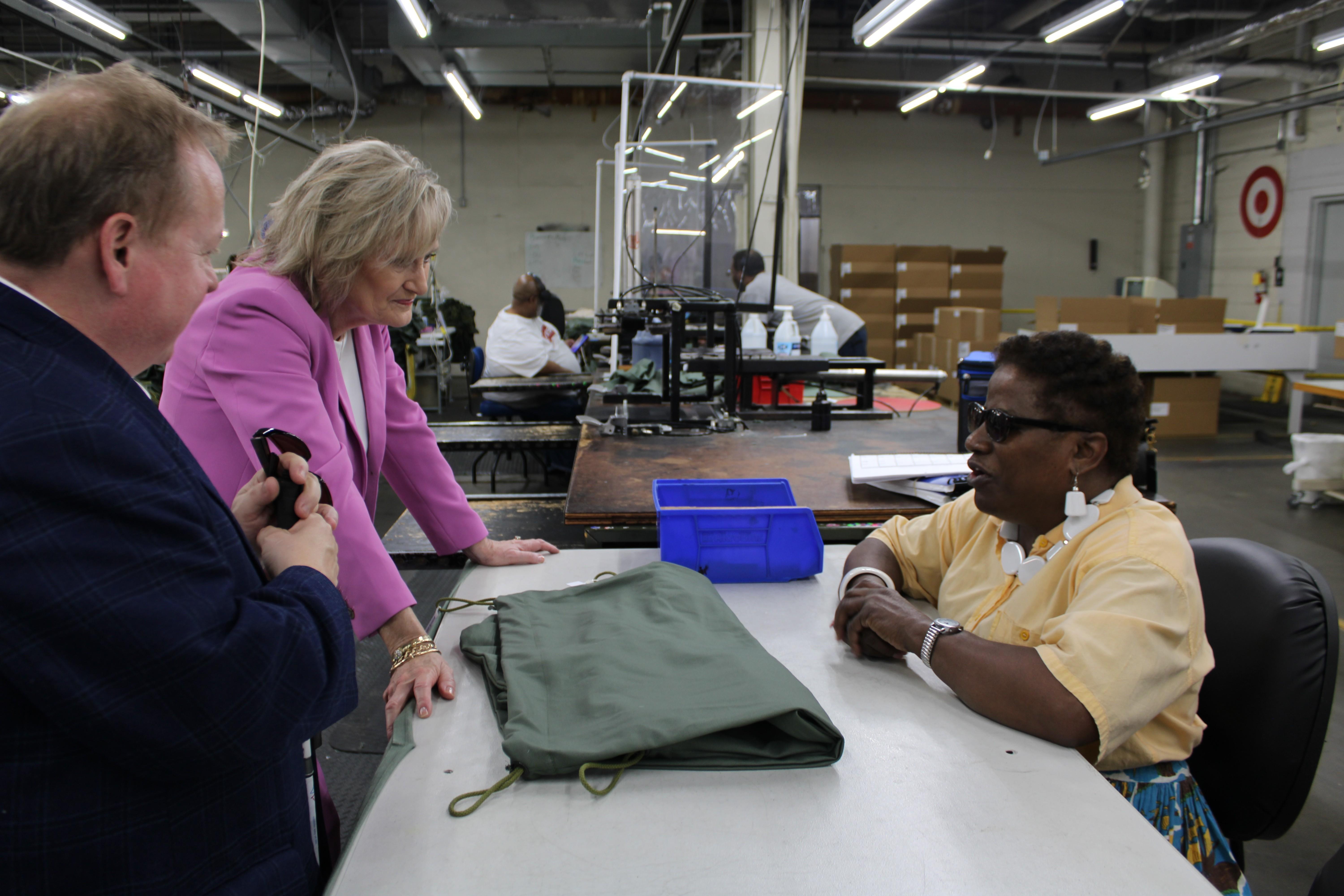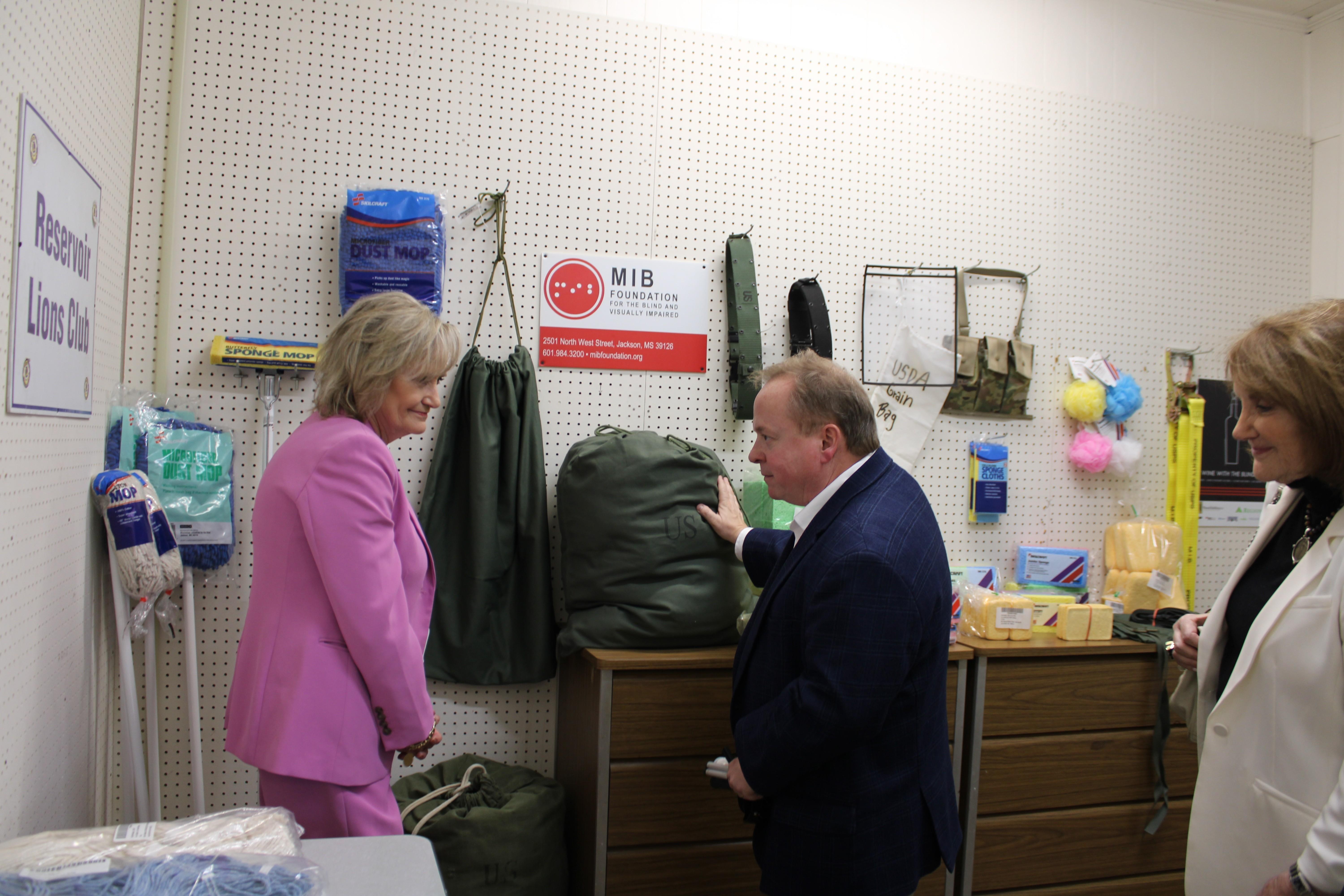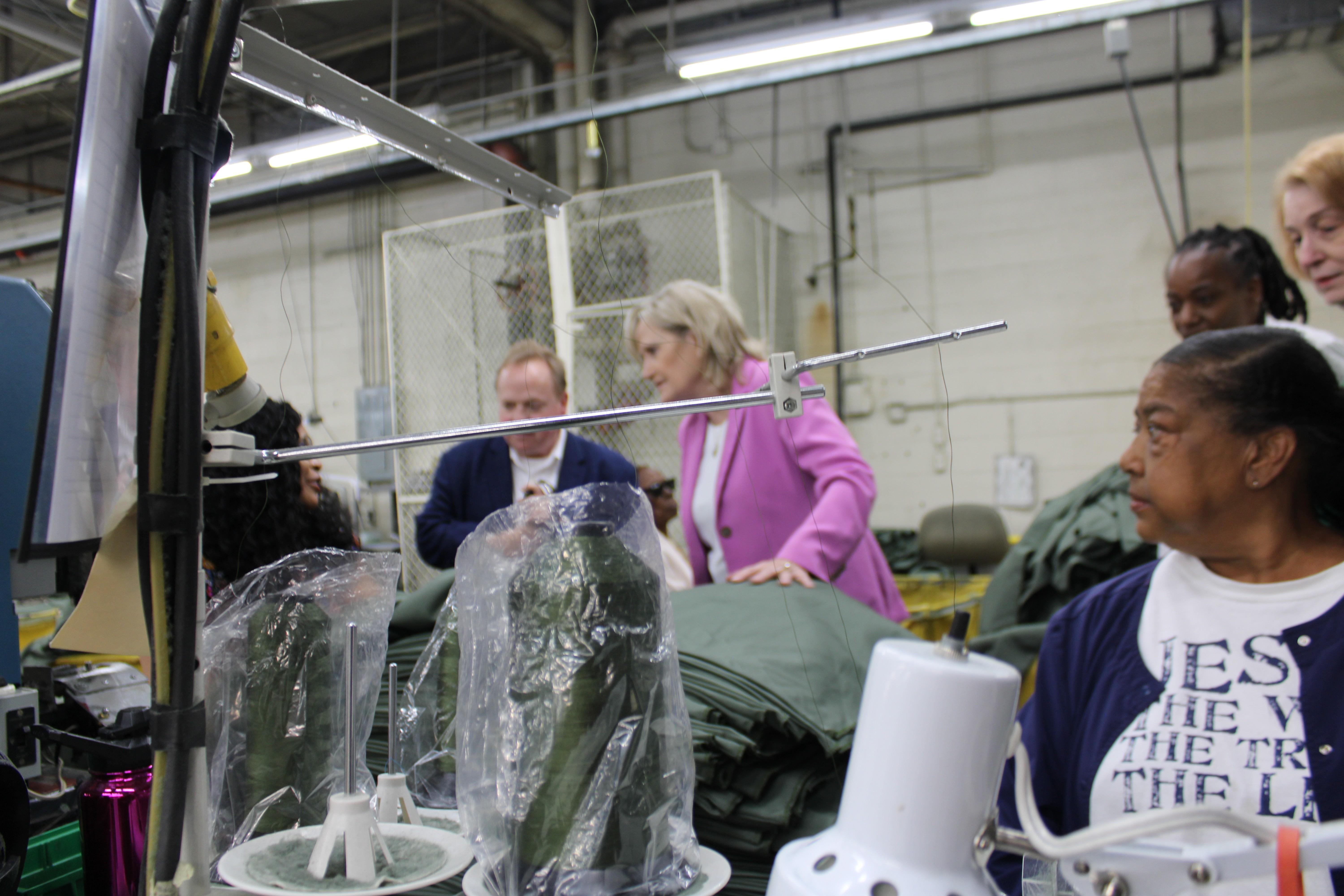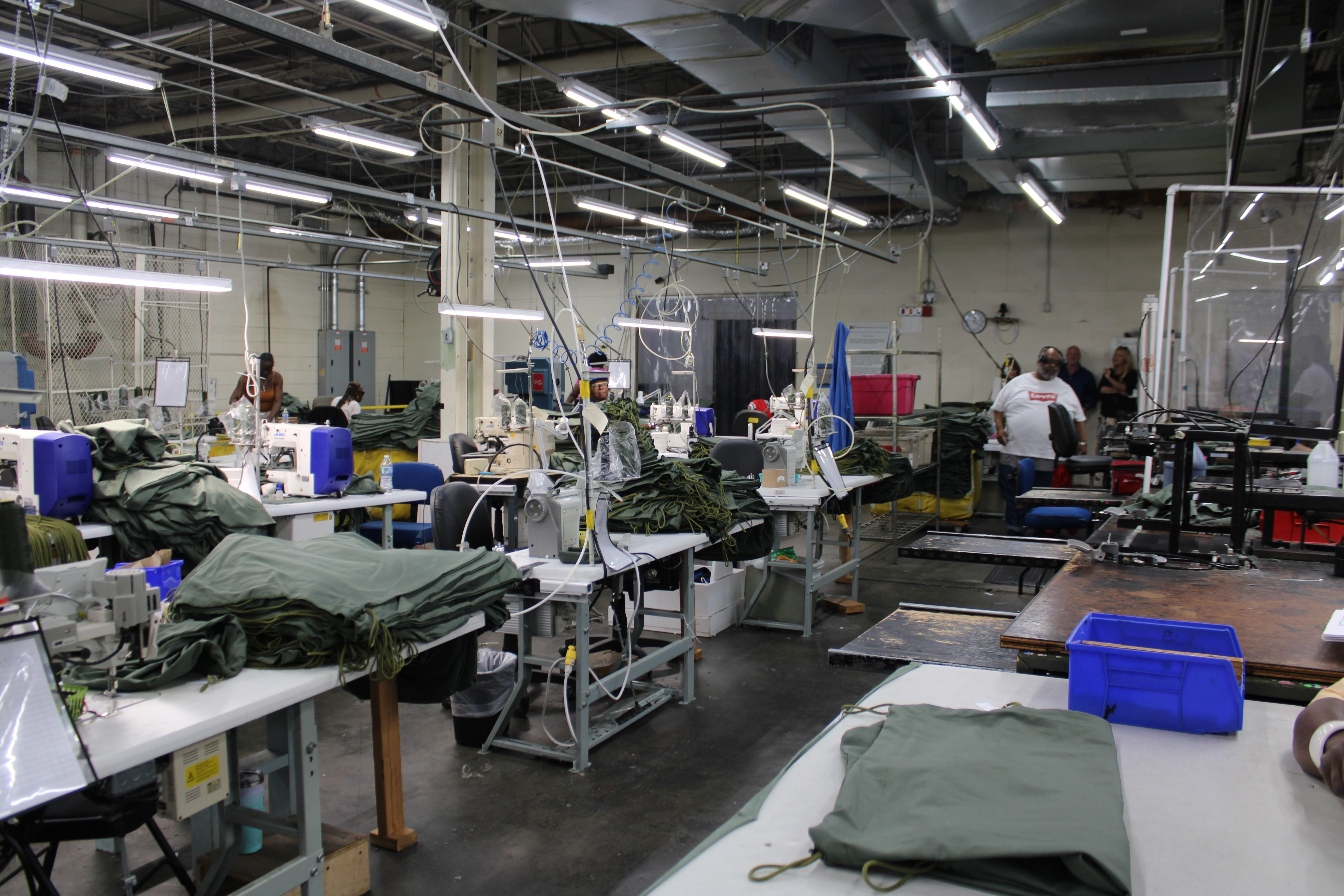Spicer said it was important for blind and visually impaired people to know that they could be employed and retain independence.
“At least have folks who are blind and visually impaired have something to do where they can feel like they are contributing to society,” he told Sen. Hyde-Smith.
In another part of the building, the senator spoke to Melvin Traylor, a visually impaired employee from Jackson. He was a truck driver before he began to lose his vision.
“I had a great life,” Traylor said. “I mean, I just miss more of hunting, fishing, and all that.”
He’s been working at the Mississippi Industries for the Blind for 13 years.
The senator looked on as visually impaired seamstress Mary Nichols sewed a postal worker accessory.
“How many of those do you do a day?” Sen. Hyde-Smith asked her.
“I might do a thousand a day,” Nichols responded, smiling as she showed the senator how she was able to use her machine to quickly stitch the strap.
After the bell alerting workers it was closing time rang, Senator Hyde-Smith spoke to a small group of representatives from the agency about their fears that the production of the products they create could go overseas.
She said she appreciated the tour’s ability to make her more conscious of what the needs of her community were.
“It just makes you aware and to capitalize on the opportunities that you have, that you see that may be a new opportunity,” Sen. Hyde-Smith told those gathered in the room. “But very conscious of the fact we need to keep these contracts here.”
Mississippi has the second highest prevalence rate of vision loss in the country, according to the Centers for Disease Control and Prevention.







